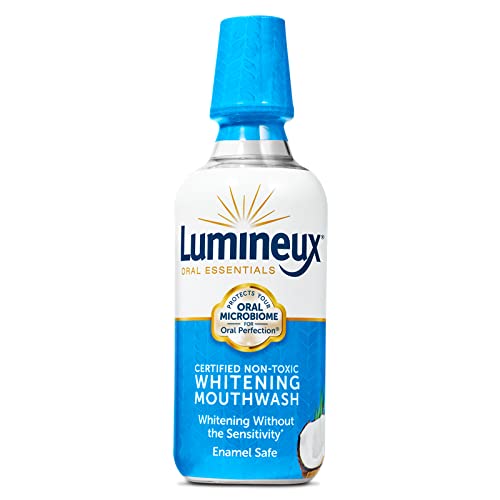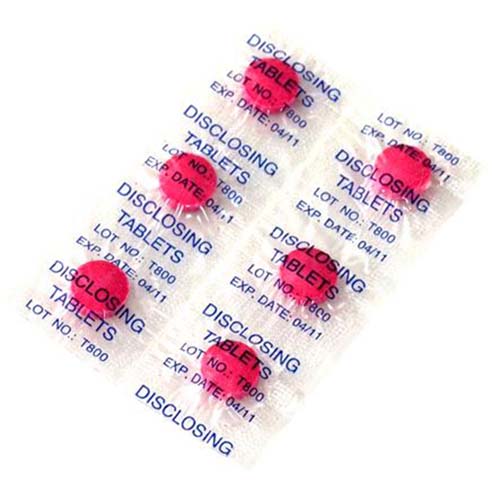How Effective Is Mouthwash Whitening?

The quest for a brighter, whiter smile has led many to explore various oral care products, including mouthwash whitening. Mouthwash whitening has gained popularity due to its convenience and promises of effortless teeth whitening. However, the effectiveness of mouthwash whitening depends on several factors, which we will delve into in this article.
To understand the effectiveness of mouthwash whitening, it’s essential to grasp how it works. Mouthwash whitening products typically contain mild abrasives, hydrogen peroxide, or carbamide peroxide, which help break down and remove surface stains from teeth. These ingredients can be found in various concentrations, and their effectiveness varies depending on the product and individual user.
One of the primary benefits of mouthwash whitening is its ease of use. Simply swish the mouthwash around your mouth for the recommended time, usually 30 seconds to 1 minute, and spit it out. This convenience factor has led many to incorporate mouthwash whitening into their daily oral care routine. However, it’s crucial to note that mouthwash whitening is not a substitute for regular brushing, flossing, and dental check-ups.
The effectiveness of mouthwash whitening can be measured in terms of its ability to remove surface stains and whiten teeth. Studies have shown that mouthwash whitening can be effective in removing surface stains, particularly those caused by coffee, tea, and wine. However, the whitening effect may be limited to the tooth surface, and it may not penetrate deeper stains or whiten teeth significantly.
A comparative analysis of mouthwash whitening products reveals that those containing hydrogen peroxide or carbamide peroxide are generally more effective than those with mild abrasives. A study published in the Journal of Clinical Dentistry found that a mouthwash containing 1.5% hydrogen peroxide was effective in removing surface stains and whitening teeth. Another study published in the Journal of Esthetic and Restorative Dentistry found that a mouthwash containing 2% carbamide peroxide was effective in whitening teeth and reducing tooth sensitivity.
Despite the potential benefits of mouthwash whitening, there are some limitations and potential drawbacks to consider. One of the primary concerns is tooth sensitivity, which can be exacerbated by the use of mouthwash whitening products. Additionally, mouthwash whitening may not be effective for everyone, particularly those with deeper stains or tooth discoloration. It’s also essential to follow the product instructions carefully and avoid overusing mouthwash whitening products, as this can lead to tooth erosion or other oral health issues.
To maximize the effectiveness of mouthwash whitening, it’s essential to combine it with good oral hygiene practices. This includes brushing your teeth at least twice a day with a fluoride toothpaste, flossing once a day, and visiting your dentist regularly for check-ups and cleanings. Additionally, avoiding stain-causing foods and drinks, such as coffee, tea, and red wine, can help maintain a whiter smile.
In terms of future trends, the mouthwash whitening market is expected to continue growing, with new products and technologies emerging. One area of development is the use of nanotechnology to create more effective and targeted whitening agents. Another area of research is the development of mouthwash whitening products that are specifically designed to address tooth sensitivity and other oral health concerns.
Mouthwash whitening can be a useful addition to your oral care routine, but it's essential to have realistic expectations and follow the product instructions carefully. To maintain a healthy, white smile, it's crucial to combine mouthwash whitening with good oral hygiene practices and regular dental check-ups.
In conclusion, mouthwash whitening can be an effective way to remove surface stains and whiten teeth, but its effectiveness depends on various factors, including the product concentration, individual user, and oral health practices. While mouthwash whitening has its benefits, it’s essential to be aware of the potential limitations and drawbacks and to use these products in conjunction with good oral hygiene practices.
How long does it take to see results from mouthwash whitening?
+Results from mouthwash whitening can vary depending on the product and individual user. Some users may see results after a few days, while others may take several weeks to notice a difference.
Can mouthwash whitening damage tooth enamel?
+Mouthwash whitening products can potentially damage tooth enamel if used excessively or with too high a concentration of whitening agents. However, most mouthwash whitening products are designed to be safe for tooth enamel when used as directed.
Is mouthwash whitening suitable for sensitive teeth?
+Mouthwash whitening products can be used on sensitive teeth, but it's essential to choose a product specifically designed for sensitive teeth and to follow the product instructions carefully. Additionally, it's recommended to consult with a dentist before using any mouthwash whitening product on sensitive teeth.
In the end, mouthwash whitening can be a valuable addition to your oral care routine, but it’s crucial to understand its limitations and potential drawbacks. By combining mouthwash whitening with good oral hygiene practices and regular dental check-ups, you can maintain a healthy, white smile and enjoy the benefits of a confident, beautiful smile.
